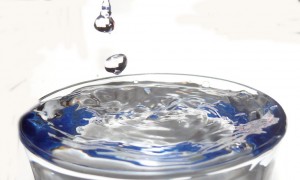Do You Know the Differences Between Water Treatment Options?
If you are considering buying a water treatment solution for your home, you may be a little overwhelmed by your options. So, how do you know what you are buying and if it is the right solution to meet your needs? Here are some basics so that you can understand the differences between your water treatment options and make the right choice. 
The Basic Principles:
One of the most common types of domestic water treatment solutions is the water softener. Water softeners use a process called ion exchange to remove the magnesium and calcium ions and replace them with either salt or potassium ions.
The other main option is the water conditioner. As the name suggests, water conditioners are used to simply “condition” the water to make it smell and taste better by reducing the amount of chlorine.
Which is Best?
You are likely to find that many retailers offer both softeners and conditioners. The reason for this is that both of these systems are different and serve different purposes. Water softeners are ideal for homes with a hard water supply while conditioners are more suited to homes with unpleasant tasting or smelling water. Some dealers will try to convince you that a conditioner is a more environmentally conscious option, but it may not actually be suitable to solve your particular issue.
The environmental issue is continually brought up by homeowners worried about their carbon footprint. While it is true that a traditional water softener will discharge a few salts into the drain, modern water softeners are designed to minimize this. This development has improved the efficiency of new water softeners and should alleviate concerns that may have prevented you from improving your water supply.
In fact, an independent study conducted by the Battelle Memorial Institute documented the effects of water hardness on laundry washers, water heaters, faucets and showerheads. The research team found overwhelmingly that softened water produced better efficiency and function, appearance and lifespan. After extensive testing, there were no calcium deposit or clogged pipes, and appliances required significantly less energy to function. Additionally, the plumbing, fixtures and appliances lasted longer with the need for fewer repairs. There were also no water spots that needed harsh chemicals to scrub them away which in themselves are actually environmentally toxic and polluters.
The statistics produced by the Batelle research team showed that water heaters with a soft water supply cost 47% less to operate compared to those appliances using hard water. Even when the water heater was the most energy efficient model available on the market, it was still 10% more efficient when using softened water.
The team concluded that water softeners could reduce the carbon footprint of your home by in excess of 14% just for water heating. When you consider all of the home appliances that have been dumped in landfills when they prematurely wore out and the additional energy needed to operate them, there are simply no environmental benefits to using hard water in your home. So, by investing in a water softener, you can not only enjoy better greater aesthetic benefits around your home, but you can reduce your energy bills and reduce the environmental impact your home and everyday living may have on the planet.
About The Author:
Greg Scott is President of Valparaiso based Miracle/EcoWater Systems, the premier water conditioning company in Northwest Indiana serving the Lake, Porter and LaPorte County areas. A 3rd generation water treatment professional, Greg grew up in the family owned business started by his grandfather in the late fifties. He has made water treatment his life and under his direction and high-standards, the company’s water treatment experience, knowledge, and products are unrivaled in region.
Back to
